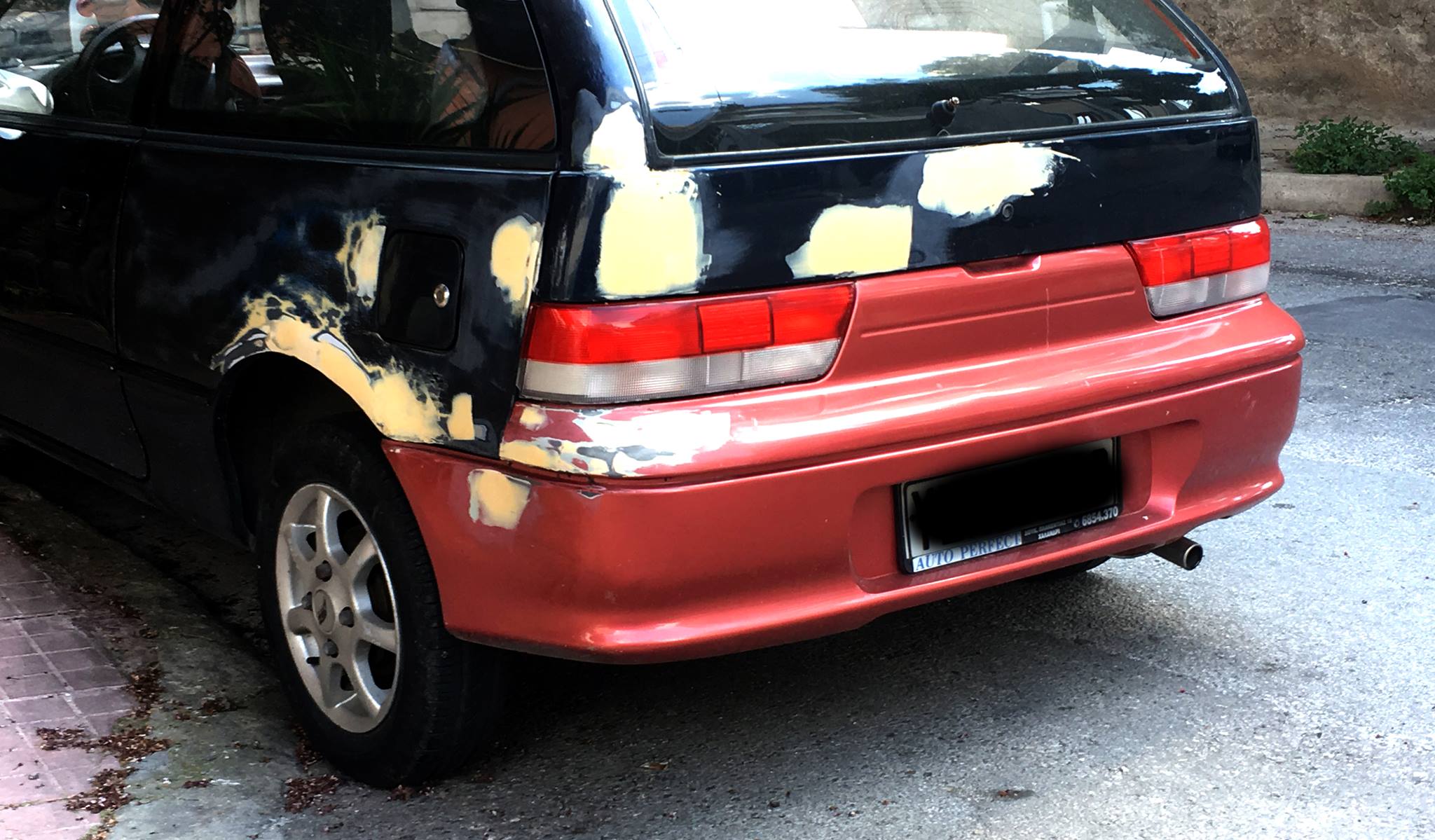EXHAUSTED
Curated by Nicolas Vamvouklis
in collaboration with K-Gold Temporary Gallery
“Exhausted” represents an institutional self-diagnosis, a sort of medical certificate or, better, of exhaustion. On the other hand, Papageorgiou himself embodies a state of tiredness caused by a demanding art system. The title also refers to exhaust pipes, the final part of a car’s engine system through which burned gases or steam are discharged, signifying a moment of decompression. To escape from a new occupation, the artist, at the venerable age of 26, turns his gaze backwards imagining his own retrospective: a format that can only exist here paradoxically thanks to the feverish pretensions of the aforementioned system, the same that made possible the accumulation of a large amount of works over a few years. “Exhausted” ironically pauses, at a small turnaround, the chronometer that adjusts the gruelling race towards the success of the contemporary artist.
The research conducted by Papageorgiou in the recent years therefore results in a retrospective on the peripheral metropolitan context. A universal dimension in which public housing and a somewhat domesticated nature become the background to car and scooters racing. A payback to this scenario is Rap music, a genre that often portrays the lifestyle and inner values of urban micro-communities that see the car as a sort of religious object. And it is a dismembered, destructured and recomposed car that occupies the exhibition space: a forest of mufflers, lanterns, seats, wheel tracks as symbols of breakaway.
The artist brings together fragments of his ongoing research in a series of wall compositions (Take a walk on the wild side, 2017), using archival display techniques to create a polyptych of plaques featuring imagery related to street culture. He juxtaposes rearrangements of headlights and exhaustion pipes (Cheap Imitations: exhaustion pipes, 2016) or common anti-objects that lose their original function (Untitled, 2016).
The ironic sense of tiredness infects Il Colorificio itself. The choice of Nicolas Vamvouklis (K-Gold Temporary Gallery) as curator of the third exhibition, besides compelling a confrontation on today’s conception of authority and re-emphasizing the vocation of Il Colorificio for an opening toward projects, must be understood as the establishment of a momentary truce.
–
A cura di Nicolas Vamvouklis
in collaborazione con K-Gold Temporary Gallery
Il titolo “Exhausted” rimanda allo stato di spossatezza dell’artista, ironicamente già affaticato alla sola età di 26 anni da un sistema troppo esigente per le sue pretese di produttività. Il titolo si riferisce anche alla marmitta [in inglese “exhaust pipe”], ovvero la componente terminale del motore delle macchine che, in un momento di decompressione, scarica i gas e i vapori. Per sfuggire agli sforzi necessari a nuove produzioni, Papageorgiou sfrutta il formato della retrospettiva, rivolgendo lo sguardo indietro. Questa tipologia di mostra diviene un escamotage per concedersi una pausa e rileggere alcuni dei suoi lavori più iconici provenienti da differenti periodi della sua produzione passata.
La ricerca dell’artista analizza alcuni contesti periferici metropolitani, universi regolati da barre rap e offuscati da fumi di gare illegali. La macchina, eletta a oggetto di culto, viene smembrata, destrutturata e ricomposta in un ecosistema di marmitte, sedili, tracce di ruote che divengono frammentari simboli di un’evasione. In “Exhausted” Papageorgiou presenta alcune composizioni a muro (Take a walk on the wild side, 2017) che sfruttano il display tipico dell’archivio per creare quadri polifonici di immagini legate alla cultura della strada, insieme a rimaneggiamenti scultorei di fari e marmitte (Cheap Imitations: exhaustion pipes, 2016) o ad anti-oggetti quotidiani in metallo (Untitled, 2016).
L’ironica condizione di stanchezza finisce poi per contaminare anche Il Colorificio, la cui scelta di delegare l’organizzazione della terza mostra al curatore Nicolas Vamvouklis (K-Gold Temporary Gallery) viene letta, in questa prospettiva, come un’ulteriore defezione rispetto alle sue responsabilità. La delega curatoriale amplifica così la riflessione sui ritmi di produzione culturale nella società contemporanea.
 VASILIS PAPAGEORGIOU
VASILIS PAPAGEORGIOU